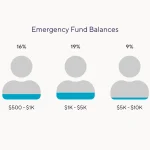
Foreign exchange (FX) fraud is a common scam involving the deception of forex traders. The phenomenon of currency trading started to be popular in the early part of the 2008 recession. According to Michael Dunn, a Commissioner at the U.S. Commodity Futures Trading Commission, currency trading became the subject of many investigations. Thankfully, there are ways to protect yourself from forex scams. Listed below are some steps you can take to help you avoid falling victim to forex fraud.
Criminal cases involving Forex fraud typically involve federal law enforcement. In many cases, the FBI works up the case after a complaint by the CFTC. The FBI then refers the case to state or federal prosecutors. For the most part, the criminals are prosecuted for wire and mail fraud. It’s always a good idea to hire a Forex fraud lawyer if you’re accused of forex fraud. The cost of an experienced criminal defense attorney may be minimal compared to the financial damages you’ll likely face.
Forex scams are common in the world of Forex trading. The vast majority of these scams involve sophisticated con-men who use a network of interconnected limited liability companies to hide their identities. While some of these companies are dormant, most of them are still active. The only way to protect yourself from this kind of scam is to be very wary. A scammer might offer to help you get rich quick, require minimal money and promise a steady profit without risk.
For example, the Commodity Futures Trading Commission recently announced the creation of a new task force to investigate retail foreign currency markets for potential fraud. The new task force will be housed within the agency’s Enforcement Division and continue to work with state and federal regulators as well as criminal enforcement agencies. These fraud cases are important because they help protect the reputations of honest traders in the futures industry. This is why the CFTC is committed to keeping the market as safe as possible.
Scammers do not seek genuine licenses or certifications. Often, a phony firm can get an “offshore zone” document. However, the requirements of this area are very strict, so there are many shoddy companies. The scammer will then go away once their organization closes down. A scam is also a good reason to avoid Forex trading altogether. There are several steps you can take to avoid being a victim of forex fraud.
Forex scammers use various tactics to attract victims. One of the most common methods is cold calling. Scammers always promise high returns on investments. These promises are too good to be true. Make sure to always check the website or contact with a reliable broker before investing. If you are concerned about forex scams, read the CFTC’s forex fraud webpage. If you are not sure how to spot a scammer, start by evaluating the reputation of the company.


